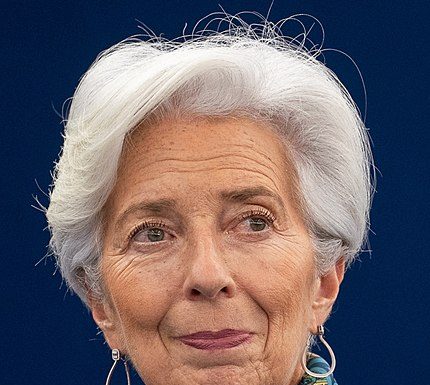
During the last two decades, the European Union has been very successful in concluding trade agreements with countries outside the EU. It has concluded trade deals with Chile, Egypt, Georgia, Israel, Japan, Mexico, South Korea, Ukraine, Singapore, Canada, South Africa and Vietnam. Some of these agreements only came into force provisionally and partially, but there is no denying that the EU has had considerable success, possibly more so than in the further liberalization of trade within the EU.
In recent years, however, things have stagnated. It all started with the failure of “TTIP” in 2016, which was supposed to be a major trade agreement with the U.S. The EU did manage to agree deals with the South American trade bloc Mercosur in 2019 and with China in 2020 – this was an all in all limited investment pact – but the political opposition among EU member states to ratify these appears particularly strong, with the Chinese sanctions in retaliation for EU sanctions not really helping either. A trade deal was also reached with the UK at the end of last year, but then that was really necessary to limit the damage from Brexit. Meanwhile, the only real trade negotiations the EU has left are with Australia and New Zealand. Things are not looking rosy for the former agreement either after Australia decided to break up an agreement with France on the purchase of submarines.
A more protectionist course
On top of that, Ursula von der Leyen’s European Commission announced a more protectionist policy course. This happened back in 2019, before the outbreak of the Corona crisis, which gave global protectionism a substantial boost.
Here, the Commission is focusing on the imposition of “anti-dumping measures” when trading partners apply subsidies or “unfair” pricing, as well as stricter supervision of foreign investment, especially when it involves a Chinese state investor. Furthermore, this also involves heavy supervision of “big tech”, with the European Commission enthusiastically using the weapon of competition policy to threaten big tech companies with fines, whereby “fair competition” is not always clearly defined and it all rather quickly seems to boil down to targeting more successful U.S. competitors.
Environmental and digital protectionism
A particularly important development is also what might be called European “environmental protectionism.” While European energy prices are going through the roof, in part because of the high compensation European companies must pay to emit CO2, because of the EU’s CO2 emissions trading system, the Commission is working on a carbon tax which foreign importers of certain goods will have to pay. This so-called “Carbon Border Adjustment Mechanism” (“CBAM“) is provoking a lot of resistance from the EU’s trading partners and may well violate the rules of the World Trade Organization (WTO).
The Social Democratic chairman of the European Parliament’s trade committee, German MEP Bernd Lange, therefore already warned that it is of great importance that the EU first reaches an agreement with the U.S. on this, “so that this does not end up in a WTO lawsuit.” However, other trading partners, such as Russia, are also very concerned. In response, Russia is now preparing its own similar tax. This makes clear how EU protectionism gives rise to even more global protectionism. That the effect of the European CBAM import tax on CO2 reduction is ultimately minimal also gets almost no attention.
A similar debate is currently raging about the “digital tax” which the European Commission just refuses to shelve, even though the U.S. government already made an opening here at the level of the OECD negotiations. Once upon a time, in the year 2000, the EU set itself “a new strategic goal for the next decade: to become the most competitive and dynamic knowledge-based economy in the world capable of sustainable economic growth with more and better jobs and greater social cohesion.”
Nowadays, there is primarily an obsession to have more taxes and more protection.
Trade under conditions
On top of that, the European Commission is keen to subject trade to the adoption of all kinds of EU standards and rules, “putting sustainability at the heart of its new trade strategy.” Practices like forced labor – which is a risk in the context of the EU agreement with China – should of course be outlawed, but the question is whether imposing all kinds of preferences is reasonable, especially considering the fact that by 2024, 85% of global GDP will be generated outside the EU.
On that front, the European Commission is taking a particularly aggressive approach to palm oil producers. For example, it wants to introduce legislation denying access to the EU for meat, palm oil or other products that are linked to deforestation.
That such restrictions may encourage local farmers in Brazil, for example, to switch to alternatives that are sometimes not all that kosher is quite obvious. It immediately becomes apparent how complex it is to regulate such matters from Brussels. For example, the Commission’s proposals would only partially tackle soy cultivation, even if also this entails risks of deforestation. Some NGOs have used this to call for a more wider ban, including even on the import of rubber and corn. The question is where it all stops.
The key problem is the EU’s rather unsubtle approach. A few years ago, the EU decided to gradually ban the use of palm oil for fuel, something that hits countries like Malaysia and Indonesia hard. This despite the fact that 86% of the import of palm oil in the EU can be considered sustainable. Some environmental organizations, such as WWF, are therefore more nuanced, campaigning for “sustainable palm oil”, pointing out that it provides income for more than 4 million people in both countries mentioned.
European agricultural policy
The EU’s concerns about unsustainable land use seem to be absent when looking at the European agricultural policy, with the EU still spending a third of its long-term budget of 1,100 billion euros on the agricultural sector. Those funds are still distributed mainly on the basis of ownership of agricultural land, with 80% of the money going to 20% of the recipients. In other words, large industrial concerns, who probably do not mind that the same EU which subsidizes intensive agriculture in Europe with taxpayers money prohibits imports by non-EU competitors on the basis of a so-called concern about unsustainable land use.
Last but not least, the Covid crisis and the concern to secure our own supply of crucial supplies is yet another excuse to further expand protectionism. Of course, it is correct that certain things should be better kept under control, but experience shows that economic liberalization makes an economic sector more dynamic. For example, New Zealand’s agricultural exports rose by a whopping 39% over 7 years after it abandoned its protectionist policies in the 1980s. In other words, European food security, often an argument for protectionism, is being jeopardized, not supported, by far reaching market shielding. So let’s not extend Europe’s questionable agricultural protectionism to other economic sectors.












